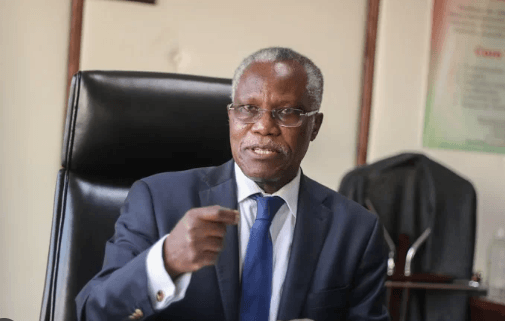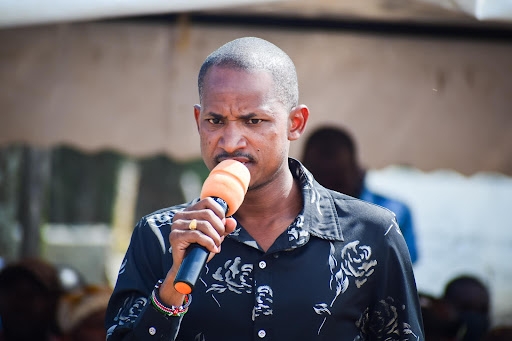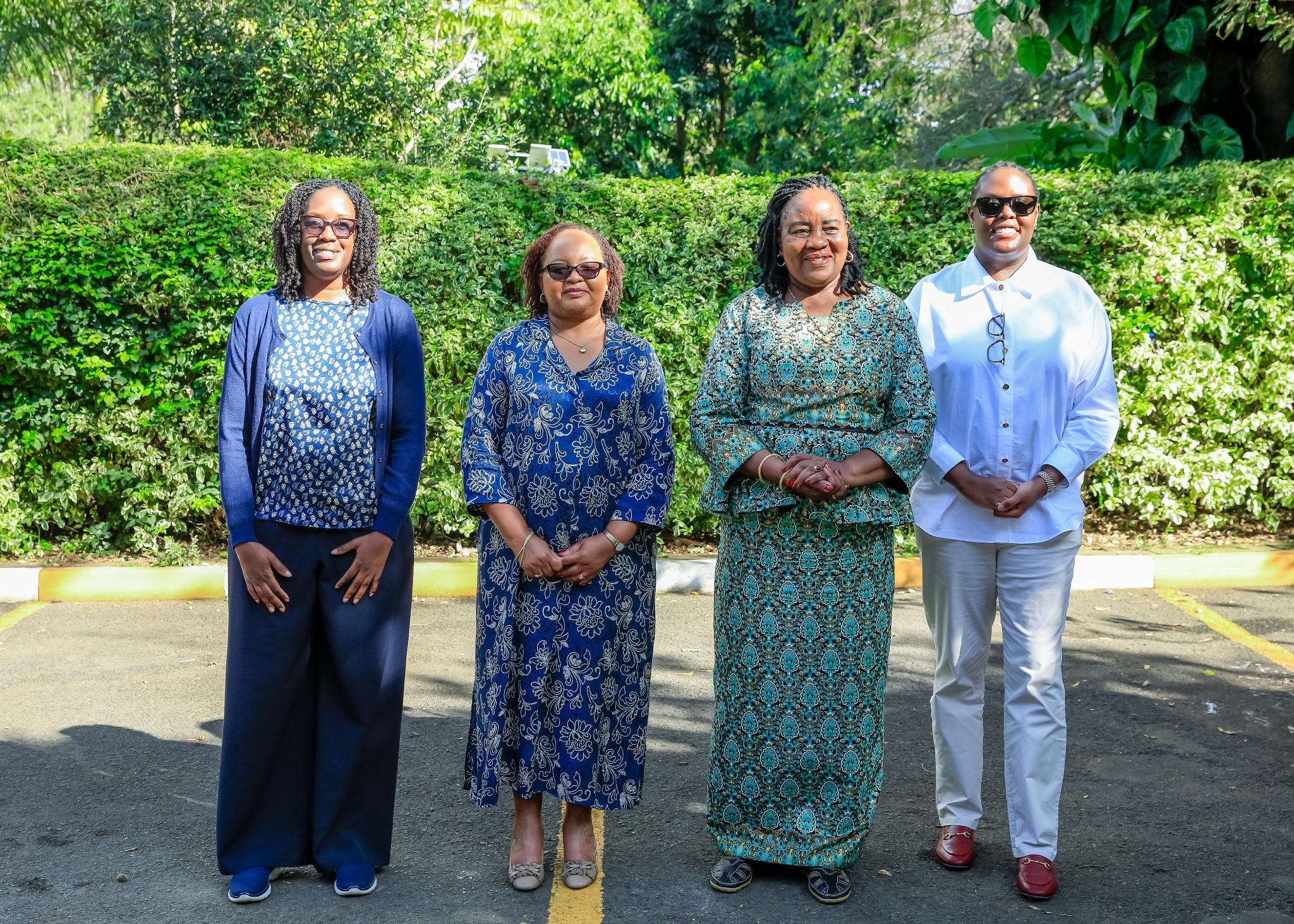
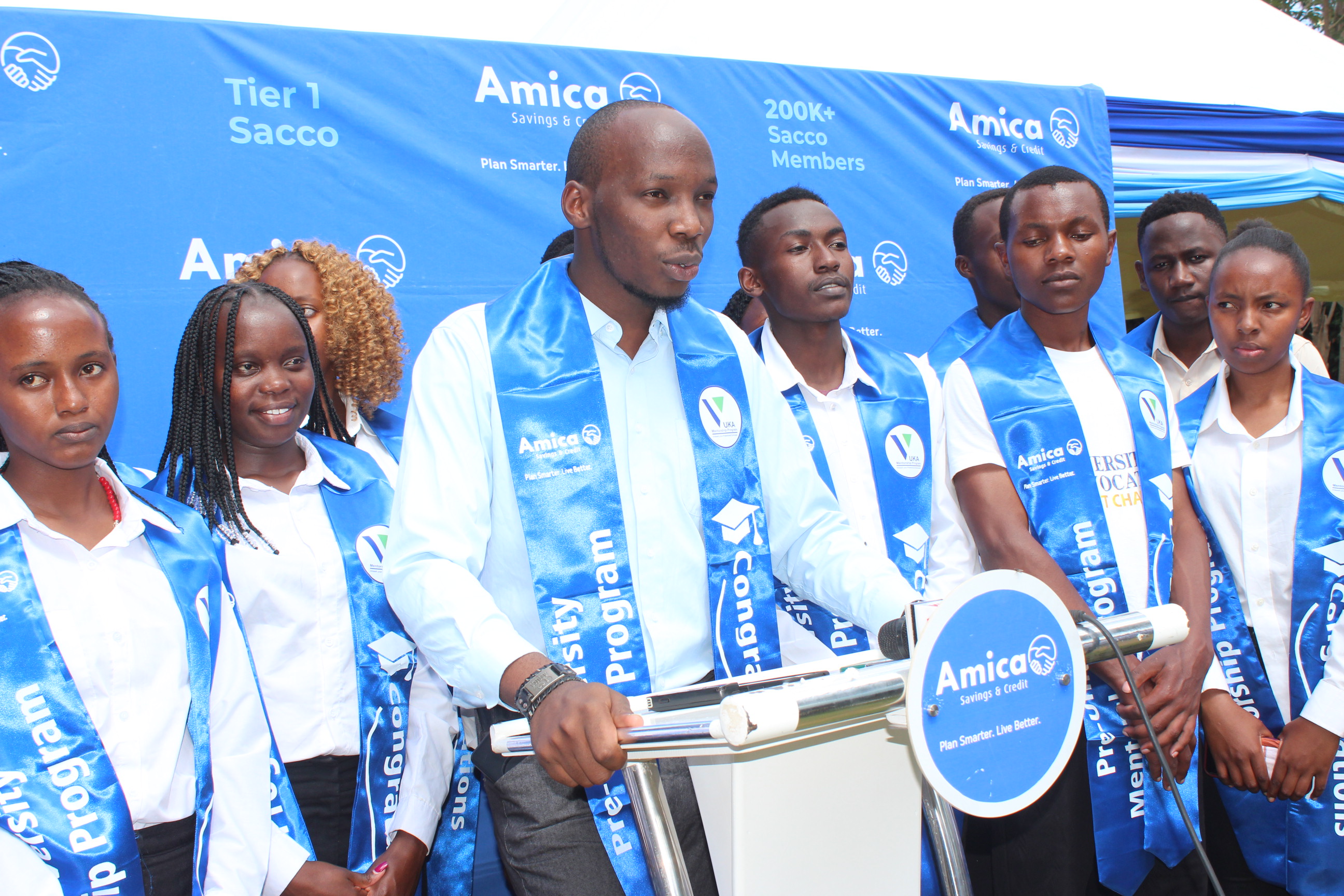 Jeremiah Macharia (centre), one of the pioneer beneficiaries of VUKA mentorship programme, during the graduation ceremony in Murang'a town.
Jeremiah Macharia (centre), one of the pioneer beneficiaries of VUKA mentorship programme, during the graduation ceremony in Murang'a town.When Jeremiah Macharia completed his secondary education in 2019, he had no hope of ever joining a university.
Despite emerging as one of the best performing candidate in KCSE exam in Gitugi ward, Macharia who went to school at Karung’e Secondary School in Mathioya subcounty, Murang’a, knew his parents could not raise the money needed to put him through the university.
“I didn’t have any hope. I couldn’t see any way that I’d further my education and I didn’t know what to do to help myself.”
But luck was on his side. Soon after the results were announced, Macharia’s parents received a call that would give his life a different trajectory.
The bright student had been selected as one of the beneficiaries of VUKA mentorship programme newly started by Amica Sacco, a Murang’a-based financial institution.
Together with other beneficiaries, Macharia was taken through a three-day mentorship where he was trained on life skills, including dining etiquette, financial management and even self-organisation.
Looking back, Macharia who graduated last year with a degree in financial engineering, said the mentorship bolstered his confidence and planted seeds of purpose and belonging through the exposure it gave him.
“They taught me to use cutlery. I had never used anything other than a spoon to eat before then. By the time I was through with it, I was totally transformed.”
Macharia was reabsorbed back into the institution for his attachment before it employed him on a temporary basis, further enhancing his skills and employability.
At 24, Macharia’s disadvantaged background seems like a distant dream and his future bright. He has managed to create models and programmes that have been integrated into the firm’s systems which he said has further boosted his confidence.
Abigael Wanjiru, another beneficiary, said she learnt how to organise her life from the programme. Having come from a disadvantaged background, Wanjiru told the Star that she had no prospects of undertaking higher education.
“I’d get constantly sent home for fees in secondary school and I knew joining a university would have been tougher for my parents,” she said.
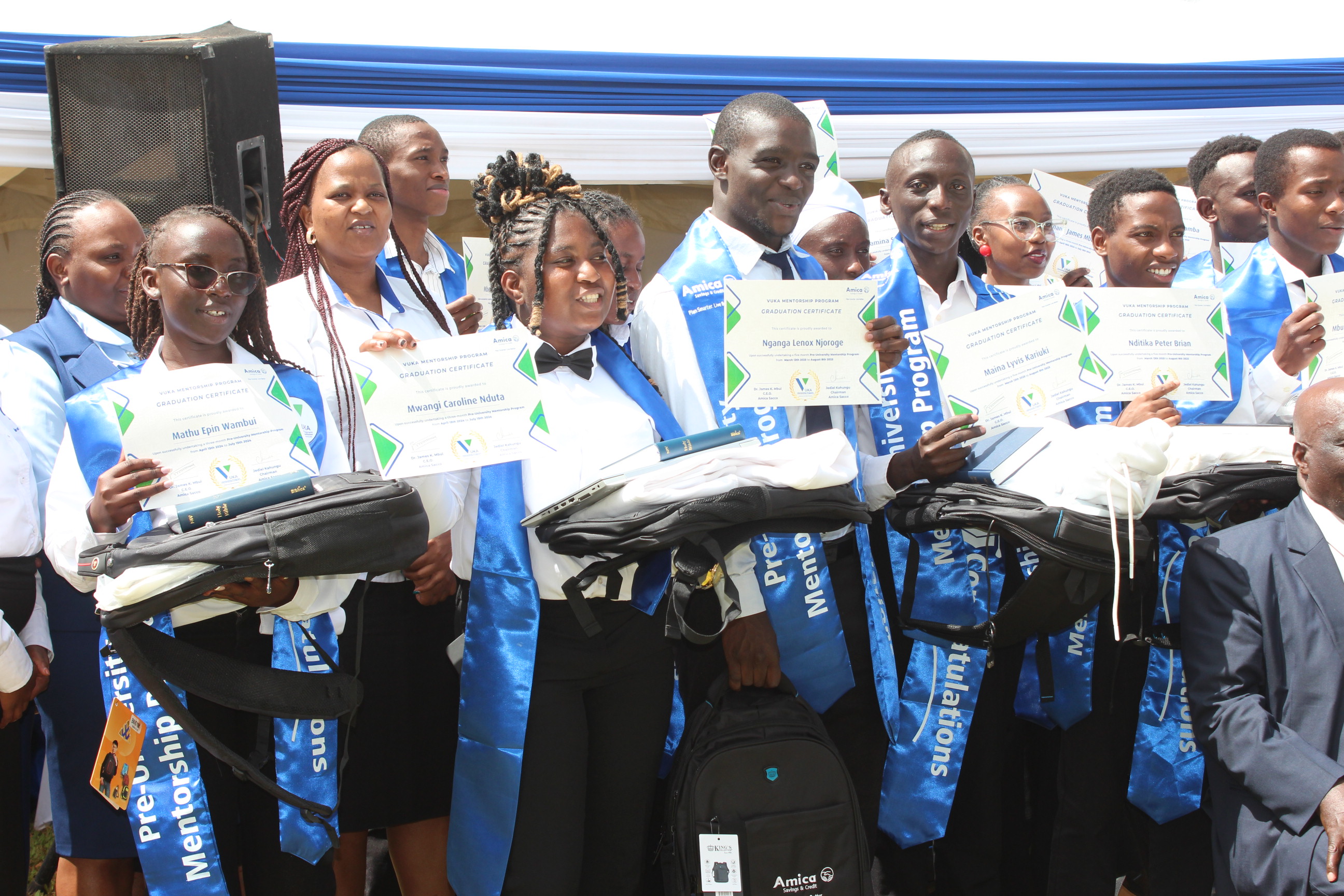 Some of the beneficiaries of VUKA mentorship programme during their gradiation in Murang'a town
Some of the beneficiaries of VUKA mentorship programme during their gradiation in Murang'a townMany of the beneficiaries who are from disadvantaged backgrounds have enrolled in universities and colleges using money they earn through the programme.
Once selected for the programme, Wanjiru who studied at Gitaru Secondary School in Kiharu, prudently used her Sh10,000 monthly earnings, and used her savings to join Jeremiah Nyaga National Polytechnic where she studied architectural engineering.
“I previously could not address a small group of people. My knees would shake and no words could come out of my mouth. Now, I can address any crowd I find anywhere,” she confidently said.
Amica’s CEO James Mbui said the mentorship programme was established after it was discovered that many learners from day schools struggled to transition to universities due to their humble backgrounds.
The programme targets 35 bright candidates from public day secondary schools, one from each ward, to equip them with much-needed skills that prepare them for the next level of their education.
“We realised many have never travelled beyond their home towns. They enroll in primary schools in their village and join the local secondary school, then are admitted to universities and get disoriented.”
The change in environment, Mbui noted, leads many to fall victim to early pregnancies, drug abuse and risky sexual activities, hindering their ability to achieve their educational dreams and condemning their families to further financial constraints.
Under the programme, the students are trained how to identify and exploit their potential and are then attached to an Amica Sacco branch nearest to their homes where they are placed under the mentorship of the branch manager and departmental head.
“Once we send them to the branches, we give them a monthly stipend of Sh10,000 for their own subsistence,” Mbui said.
Each cohort, he confirmed, spends about Sh5 million, with 142 beneficiaries trained since it was incepted, explaining that it was temporarily halted during the Covid-19 pandemic.
The sacco’s delegates have approved an allocation for the programme for next year to facilitate a new cohort as a way of giving back to the community that has supported it for decades.
INSTANT ANALYSIS
Amica Sacco spends Sh5 million annually to mentor 35 bright students from public day secondary schools and help them transition into universities. So far, the programme started in 2020 has mentored 142 students, who are also accorded internship opportunities after they complete their university education. Many of the beneficiaries who are from disadvantaged backgrounds have enrolled in universities and colleges using money they earn through the programme.













